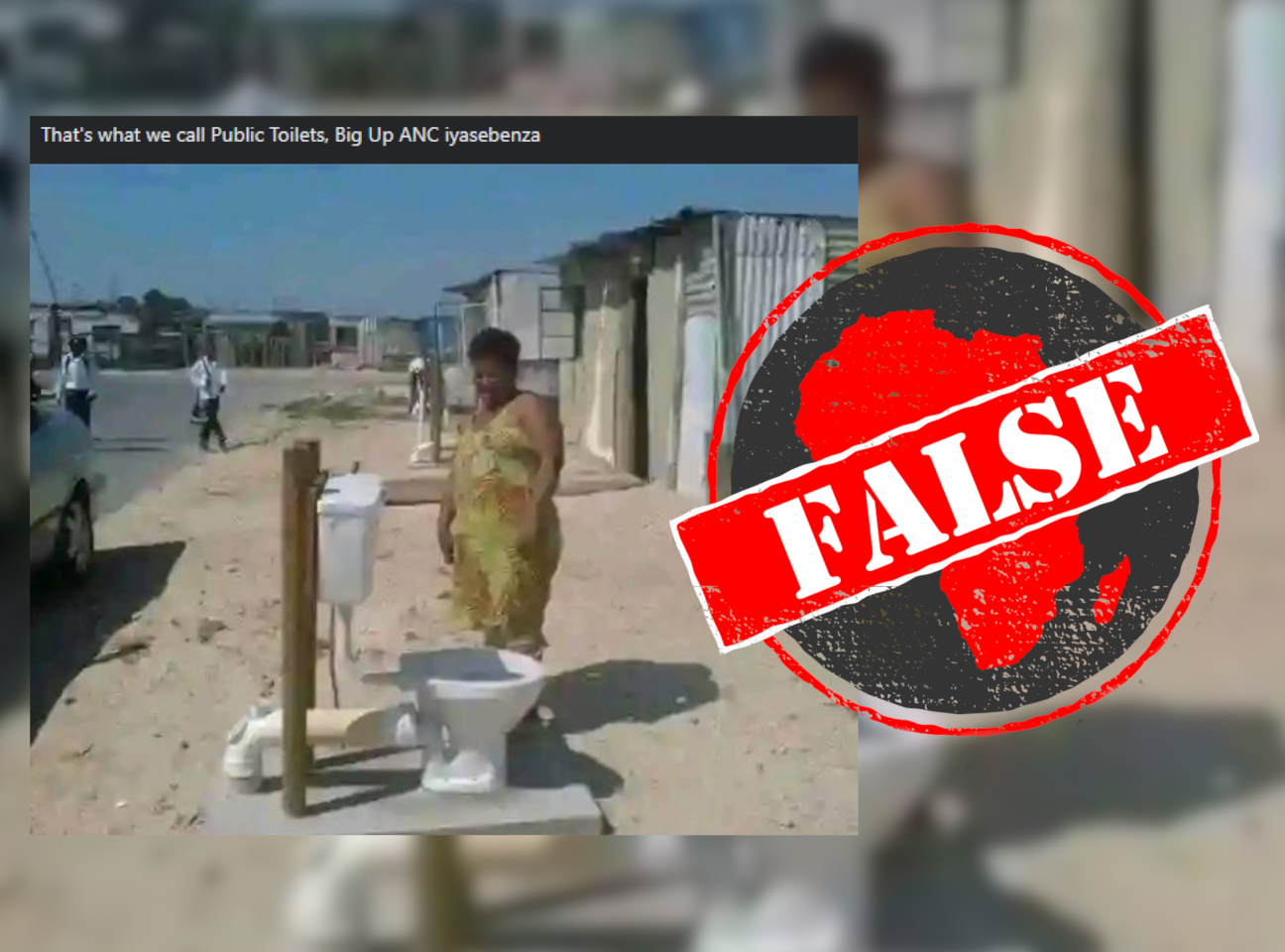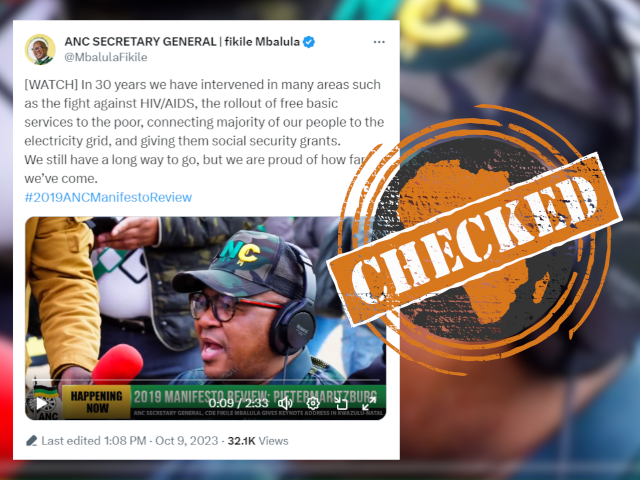IN SHORT: As South Africa prepares for what could be its most important election in 30 years, false claims about the major political parties are flooding social media. Some users have posted a photo of an unenclosed public toilet, claiming it was installed by the ruling ANC. But this is not true. The toilet was built by the opposition Democratic Alliance in 2009.
A photo of an open-air toilet on the side of the road is doing the rounds on social media. Many users claim that it’s the work of South Africa’s governing African National Congress (ANC).
The toilet has no walls, roof or door. The photo shows a woman standing and looking at it.
A common caption reads: “That's what we call Public Toilets, Big Up ANC iyasebenza.” In isiXhosa and isiZulu, “iyasebenza” can be translated as “it works” or “it is working”.
South Africa is set to hold national and provincial elections on 29 May 2024. The claim started circulating online in late February.
Opinion polls suggest the elections could be the most pivotal in 30 years, with the ANC forecast to lose the parliamentary majority it has held since 1994.
The party’s main opposition are the Democratic Alliance (DA) and the Economic Freedom Fighters and possibly the newcomer uMkhonto weSizwe Party, which is backed by former ANC president Jacob Zuma.
The supply of basic services such as sanitation (toilets and sewage systems), as well as roads, housing, electricity, clean water and rubbish removal, is a hot political issue in South Africa.
Regular power blackouts known as load shedding have plagued the country for years, and there have been over 100 major protests against poor service delivery every year since 2009.
The claim about open-air toilets can also be seen here, here, here, here, here and here.
But does the photo really show an unenclosed public toilet erected by the ANC? We checked.

Open public toilets in City of Cape Town informal settlements
A reverse image search reveals that the photo has been online since at least January 2010.
It appears in a blog post headlined: “Khayelitsha open-air toilet ‘deal’ is ludicrous!” Its caption reads: “Cllr June Frans stands next to one of the open air toilets in Khayelitsha. Their position right next to the road is very clear.”
Khayelitsha is a large township in the Western Cape province. It’s part of the City of Cape Town municipality, which includes Cape Town itself, as well as surrounding towns and townships.
The DA has governed the City of Cape Town since 2006.
The photo shows an open public toilet installed by the DA municipal council in the Makhaza informal settlement in Khayelitsha in 2009.
It was one of 1,316 public toilets installed by the DA in informal settlements that year, on condition that the community would build structures around them. Residents enclosed 1,265 of the toilets, leaving 51 in the open.
In 2010, the ANC took the DA to court, saying the toilets violated the residents’ constitutional right to dignity. The Western Cape high court ruled in the ANC’s favour and ordered the DA to enclose the toilets.
During the case, the DA claimed that when the ANC controlled the municipality from 2000 to 2005, over 4,000 open public toilets had been installed with the same condition that they be enclosed by residents.
Republish our content for free
For publishers: what to do if your post is rated false
A fact-checker has rated your Facebook or Instagram post as “false”, “altered”, “partly false” or “missing context”. This could have serious consequences. What do you do?
Click on our guide for the steps you should follow.
Publishers guideAfrica Check teams up with Facebook
Africa Check is a partner in Meta's third-party fact-checking programme to help stop the spread of false information on social media.
The content we rate as “false” will be downgraded on Facebook and Instagram. This means fewer people will see it.
You can also help identify false information on Facebook. This guide explains how.




Add new comment